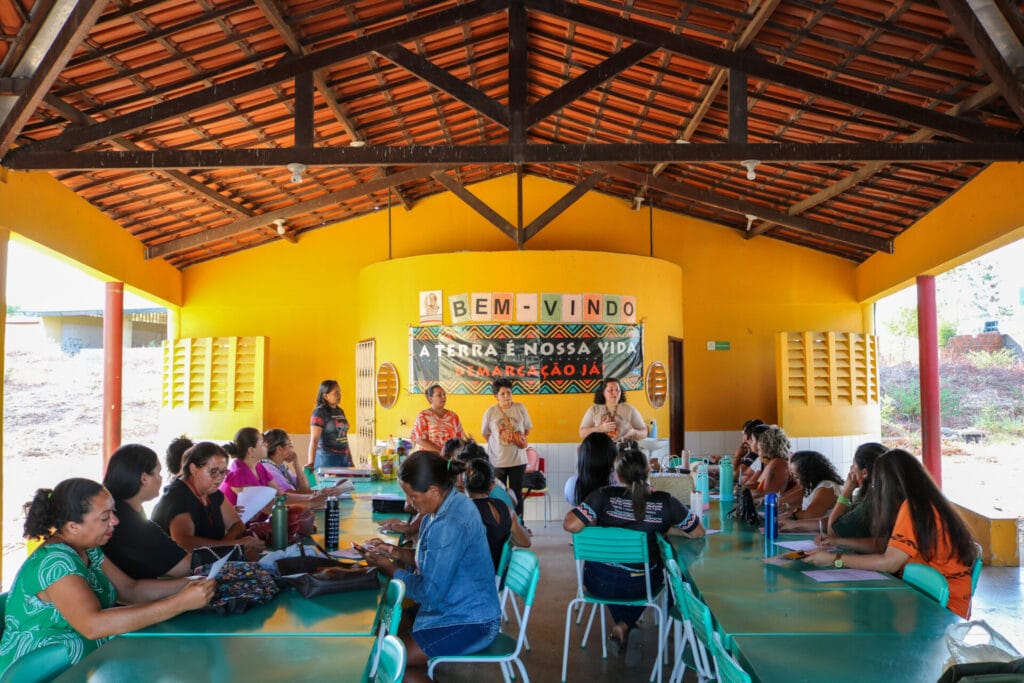The context
The project focuses on empowering young indigenous women in the semi-arid Caatinga region of Northeast Brazil. This area is characterized by challenging socioeconomic conditions, limited access to basic services, and a history of social exclusion and discrimination against indigenous communities. The project aims to strengthen these women’s capacity for self-determination, leadership, and resilience through education and training in feminist economics, gender equality, and sustainable development.

Indigenous women in the region face high levels of social vulnerability, compounded by systemic discrimination, gender-based violence, and restricted access to education and healthcare. They often work in precarious jobs with little recognition or opportunities for personal and professional growth. This project addresses these challenges by providing training in leadership, agroecology, and economic autonomy, while also promoting strategies to combat gender-based violence and food insecurity. Additionally, the project supports communities in developing climate resilience strategies, considering the adverse effects of climate change on their traditional lands and livelihoods.

The project is implemented across 31 municipalities in 4 states of Northeast Brazil—Ceará, Pernambuco, Bahia, and Alagoas—focusing on the indigenous communities of the semi-arid Caatinga region. These areas encompass 30 different indigenous ethnic groups, all of whom are directly impacted by the project's interventions.
Our intervention
Our activities focus on promoting social inclusion and sustainable development. The initiative integrates global citizenship education, promoting awareness of human rights and the cross-sectoral issues facing these communities, thus equipping participants with the knowledge and skills needed to support systemic change. From the implementation of our activities, expected outcomes include:
- A cohesive team operating across 31 municipalities will be established to effectively implement the project activities.
- Efficient monitoring and evaluation (M&E) systems will be set up to track progress and assess project indicators.
- 480 young indigenous women from 30 ethnic groups in 31 municipalities across four states of Northeast Brazil will improve their knowledge of feminist economics, gender division of labor, and strategies to address gender inequality.
- These 480 women will also strengthen their understanding of autonomy, gender equality, strategies to combat hunger and food insecurity, and promote solidarity-based economies and self-management.
- 420 young indigenous women will gain knowledge about agroecology, sustainable living in the semi-arid region, and feminist economics.
- A research study on indigenous women's work, focusing on autonomy, labor, income, care, organization, and productive inclusion, will be conducted and disseminated.
- Eight communication materials will be produced and widely shared to increase awareness of the project's actions and results.
- A network of indigenous women will be established to ensure the long-term sustainability of the project's initiatives.
